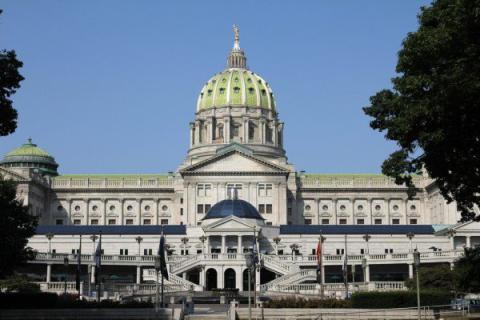On Tuesday, Pennsylvania held primary elections where voters could choose either a Democrat or Republican candidate who would then proceed to the November ballot in the state's municipal elections.
Like 17 other states, Pennsylvania has a closed primary system, meaning that only voters registered with the Democratic or Republican parties are allowed to vote. This system prevents over 1 million voters, who have registered as independent or with a minor party, from voting in the primary.However, like in all states, these partisan primary elections are ultimately funded by the taxpayers. For this year's primaries, the bill is estimated at $20 million. Although such a system has historically been the status quo, a growing share of independents in the American electorate are now speaking out.
On Tuesday, Matt Zencey, a writer for Pennlive and The Patriot-News, published a piece in which he argues that the closed primary system in Pennsylvania potentially violates the state's constitution:
"Then there’s that whole “free and equal” elections thing in the Pennsylvania constitution. Although the courts have yet to consider the question, I believe that a taxpayer-funded election which excludes a particular class of duly registered voters is not “free and equal” under Pennsylvania’s constitution."
More ideas to address this issue are currently being discussed. State Sen. Rob Teplitz supports a bill that would allow independents to register with one of the two main parties in order to vote in the primary before reverting to their original status. Yet, this remains a cumbersome process that would still not offer true equality to voters not registered with the two main parties, leaving many non-party affiliated voters feeling separate, but equal.
Matt Zencey and Jennifer Bullock, founder of Independent Pennsylvanians, both consider the nonpartisan top-two open primary a likely solution to the issue. A third solution, evoked by Barry Kauffman from Common Cause, could be to make the parties pay for their primaries.
